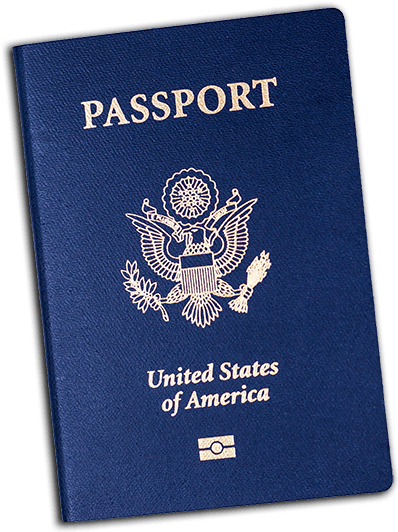PASSPORT INFO
Passport Info
As of January 23, 2007, passports are required for all travelers, including citizens of the U.S. and Canada, who enter or re-enter the U.S. by air. The passport requirement will be extended to include entries into the U.S. by land and by sea on June 1, 2009.
Until passports are required, citizens of the U.S. and Canada may use an original or certified copy of their birth certificate AND a government-issued photo ID (such as a driver’s license), in lieu of a passport, for cruises that sail roundtrip from U.S. ports (including Puerto Rico) and visit the Bahamas, Bermuda, Canada, the Caribbean, Central America and Mexico. Children under the age of 16 are not required to present a photo ID in addition to their birth certificate. Photocopies of required documentation are not acceptable.
There are a few notable exceptions pertaining to land and sea border crossings:
- U.S. citizens on cruises that begin and end in the same U.S. port and travel to destinations in Mexico, Canada, the Caribbean, the Bahamas or Bermuda will be able to re-enter the U.S. with proof of citizenship other than a passport or passport card, such as a birth certificate and government-issued photo ID. Passports will be required for cruises that begin in one U.S. port and end in another.
- Children under the age of 16 who are citizens of the U.S. or Canada will be exempt from the passport requirement for land and sea border crossings when the rule goes into effect. In lieu of a passport, children will be able to continue to use a birth certificate as proof of citizenship for entry into the U.S. by land or by sea. Children entering or re-entering the U.S. by air are still required to have a valid passport.
- A new, lower-cost alternative to the passport, called a passport card, will be acceptable for entries into the U.S. by land or sea. Compared to passports, which cost $100 for first-time applicants ($85 for children), passport cards cost just $45 ($35 for children). The passport card will not be acceptable for air travel.
Even though passports are not required at this time for U.S. and Canada citizens who sail roundtrip from the U.S. on cruises to the above destinations, we strongly recommend that all cruise passengers travel with a valid passport anyway. This is because guests who need to fly to or from the U.S. unexpectedly during their cruise will likely experience significant delays and complications related to booking airline tickets and entering the U.S. if they do not have a valid passport with them. For example, a passenger missing a cruise departure due to a late inbound flight to Miami would need a passport to fly to meet the ship at the next port. Similarly, guests needing to fly to the U.S. or Canada (via the U.S.) before their cruise ends because of medical, family, personal or business emergencies, missing a ship’s departure from a port of call, or a mechanical problem of some sort with the ship, would need a passport. Of course, situations like these are rare, but they can happen.
Passports are not required for U.S. citizens traveling to or returning directly from Hawaii or a U.S. territory, including Guam, Puerto Rico, the U.S. Virgin Islands, American Samoa, Swains Island, and the Commonwealth of the Northern Mariana Islands.
Passports are required for cruise travel to all International destinations not mentioned above, and for cruises that involve air travel that begins or ends outside of the U.S. Passports must be valid for at least six months after the last day of travel.
For information about obtaining a passport for the first time, or about renewing a passport, click here to visit the U.S. Department of State’s Web site. For more information about passport cards, click here.


